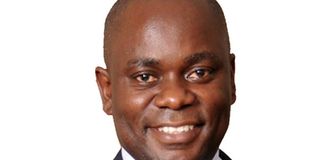What is fiscal policy in Uganda?

Fred K. Muhumuza
What you need to know:
- OTT disrupts business. Adventures that are certain to start with losses such as the Airline project and super highways would be deferred into the medium to long-term.
- Taxes such as those on mobile money and OTT that disrupt business would be deferred to allow the economic stimulus to work through business growth.
Wikipedia rightly defines fiscal policy by combining economics and political science. Policy is “what government does or does not do”.
In Uganda, government may, for practical purposes, be narrowly defined as a small part of the executive and brokers in the corridors of power. Thus, any policy in Uganda is very hard to define since the practice is often different from the pronouncements.
In fact, the government itself, now broadly defined, has conceded to the fact that “Uganda has good policies that it never implements”. So what is fiscal policy in Uganda?
The technocrats and academics would define fiscal policy as a set of tools that enable use of government revenues and expenditure to influence the economy. Notice that the gist is in the purpose, which can be to stabilise the economic business cycles (swings) along a defined and preferred growth trajectory.
Uganda has set the medium-term growth trajectory at 7 per cent per year, much lower than the double digit (10 per cent and above) that experts in the academia and development institutions believe is more appropriate for reducing poverty, creating sufficient decent jobs and moving to middle income status.
The last time the economy grew above that undesirable, but official rate of 7 per cent, was in 2010/11 when it registered 9.4 per cent. Thereafter, growth has been at an average of 4.6 per cent. Realities of this nature call for an expansionary fiscal policy that stimulates growth in the short to medium-term.
This could involve a reduction in income taxes to allow more spending, which would recursively raise consumption taxes such that government revenues are not significantly reduced.
Expenditure would also shift more to strategic projects in agriculture, tourism and mining that deliver growth in the short to medium-term.
Adventures that are certain to start with losses such as the Airline project and super highways would be deferred into the medium to long-term. Taxes such as those on mobile money and OTT that disrupt business would be deferred to allow the economic stimulus to work through business growth.
The size of government expenditure would be reduced and managed with higher precision to avoid vanity projects such as Lubowa hospital and corruption that is mainly being fuelled by impunity.
The policy would avoid events like the proposed 20 per cent increase of the budget for 2019/20 from about Shs32 trillion in 2018/19 to nearly Shs39 trillion with revenues are projected at about Shs18 trillion.
In a country where government expenditure and related projects hardly deliver any tangible economic benefits, the implied deficit, to be covered by domestic and external borrowing, speaks to a non-focused fiscal policy.
The increase in interest rates on both fiscal bonds (instruments of borrowing) and treasury bills (monetary instruments seeking low inflation), will undermine the effectiveness of private sector credit in stimulating growth. A fiscal policy that involves government borrowing of up to 16.5 per cent for three years, creates conditions that undermine, design and effectiveness of monetary policy.
These observations are in line with indications that the power and ability to influence policy has been taken away from technocrats due to political concerns of regime survival.
Just to note that part of the recent spike in the proposed 2019/20 Budget is the additional increase of Shs1.2 trillion on security, which is rightfully classified expenditure – not to be explained to the public. Such is the bulk of Uganda’s fiscal policy. The things that government does and does not do.
Dr Muhumuza is a development policy analyst committed to inclusive growth.
[email protected]




